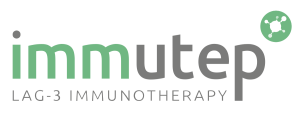
Posted: 1 May 2024
Immutep Limited (ASX: IMM; NASDAQ: IMMP) (“Immutep” or “the Company”), a clinical-stage biotechnology company developing novel LAG-3 immunotherapies for cancer and autoimmune disease, today announces preliminary topline results from Cohort B of the TACTI-003 (KEYNOTEPNC-34) Phase IIb trial evaluating eftilagimod alpha (efti) in combination with MSD’s anti-PD-1 therapy KEYTRUDA® (pembrolizumab) as first-line treatment of recurrent/metastatic head and neck squamous cell carcinoma patients (1L HNSCC) with negative PD-L1 expression.
The investigational immuno-oncology combination utilizing Immutep’s MHC Class II agonist and MSD’s PD-1 therapy demonstrates an overall response rate (ORR) of 26.9% and disease control rate (DCR) of 57.7% in 26 patients whose tumours do not express PD-L1 (Combined Positive Score [CPS] <1), according to RECIST 1.1, which compares favourably to historical controls.
Dr. Martin Forster of the UCL Cancer Institute and University College London Hospital NHS Foundation, London, UK, and TACTI-003 Investigator, stated, “These preliminary topline results in the first line setting for patients with head and neck squamous cell cancers that do not express PD-L1 are encouraging. Head and neck squamous cell carcinomas are a heterogenous disease that represent a high unmet medical need regardless of PD-L1 expression. This is especially the case for patients with tumours that do not express PD-L1 and those that cannot receive chemotherapy. The ability of efti to work with MSD’s anti-PD-1 therapy KEYTRUDA® to potentially improve patients’ clinical responses and expand patient populations that respond to the latter, without using chemotherapy, is promising.”
This new data adds to the body of evidence that efti’s novel activation of antigen-presenting cells provides a powerful boost to the immune system, which enhances the potential of immune checkpoint inhibitors. Fundamentally, efti is leading to a significant expansion of memory cytotoxic T cells that anti-PD-(L)1 therapies can act upon. Importantly, as the only MHC Class II agonist in clinical development today, efti is generating a broad anti-cancer immune response in a unique and safe manner across all levels of PD-L1 expression, even in tumours with negative expression (CPS<1).
A total of 33 patients with recurrent or metastatic HNSCC have been enrolled into Cohort B. The 26 patients reported on today represent those currently available with sufficiently long enough follow up time as per protocol and where the data cleaning has sufficiently progressed at the time of data cut-off in February. The final number of evaluable patients in Cohort B is expected to be higher and additional data, including complete response rate, will be released together with Cohort A data.
With respect to the randomized Cohort A of the TACTI-003 trial evaluating the safety and efficacy of efti in combination with KEYTRUDA® as compared to KEYTRUDA® monotherapy, 138 patients with PD-L1 positive tumours have been enrolled at over 30 centres globally. Patients in Cohort A are stratified by CPS >1, CPS 119, and CPS >20, and the clinical results for these three CPS groups will be evaluated. The cut-off for primary analysis according to the trial protocol is defined as after all subjects have completed at least three cycles of treatment (18 weeks in total) or discontinued the trial. Thereafter data collection and data cleaning need to be completed.
Data collection, cleaning, and analysis continue for TACTI-003, and the Company expects to report the primary endpoint (overall response rate according to RECIST1.1) from Cohorts A & B in H1 CY2024.
Head and neck squamous cell carcinoma (HNSCC) is the sixth most common cancer by incidence worldwide, with 890,000 new cases and 450,000 deaths reported in 2018.1,2,3 It is an aggressive, genetically complex, and difficult to treat cancer.4 Furthermore, HNSCC is associated with high levels of psychological distress and compromised quality of life (QOL).5 As such, HNSCC patients need improved treatment options.
Efti has received FDA Fast Track designation in 1L HNSCC regardless of PD-L1 expression.
KEYTRUDA® is a registered trademark of Merck Sharp & Dohme LLC, a subsidiary of Merck & Co., Inc., Rahway, NJ, USA.



